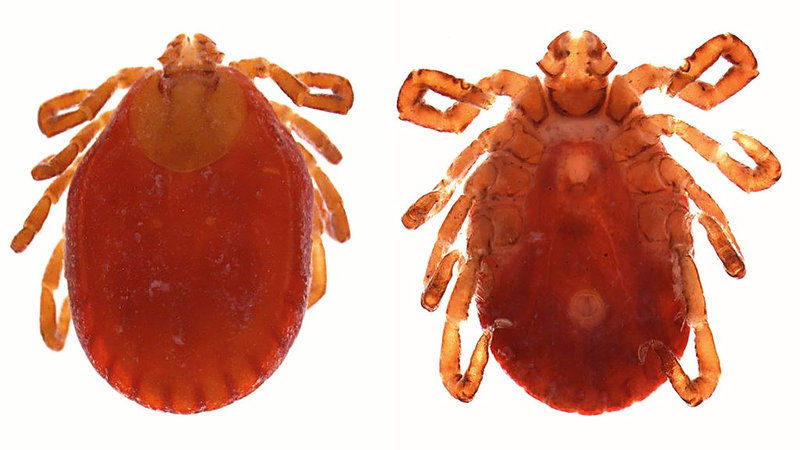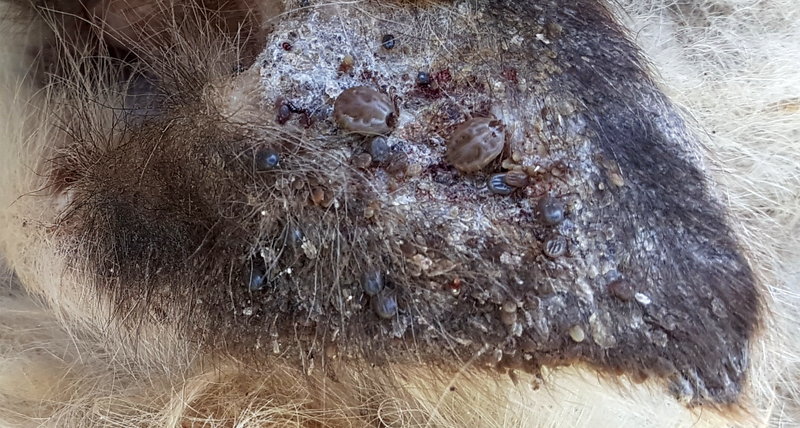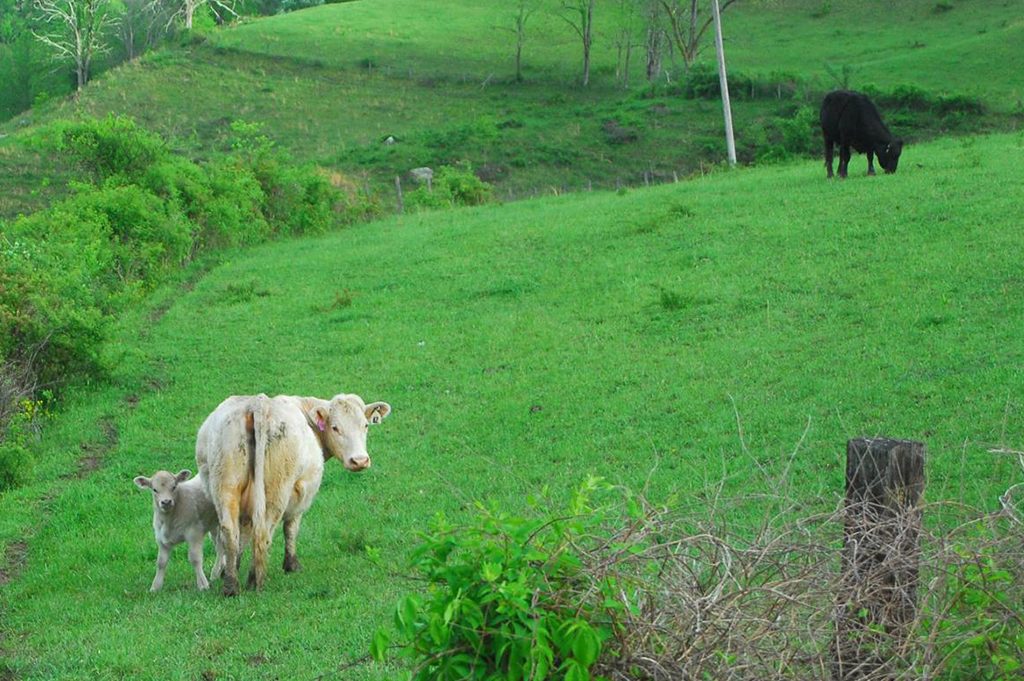Cattle farmers John and Clarise O’Dell of Roane County may see their cattle threatened by a new species of tick discovered in New Jersey and Virginia. Staff photo by Rusty Marks
By: Rusty Marks, Staff Writer | Posted: May 18, 2018 | Source: WV News
LEFT HAND — John and Clarise O’Dell operate a large cattle farm in rural Roane County. Among other things, they are on constant lookout for tick infestations on their livestock.
“We spray them and everything,” said Clarise O’Dell, adding that the cattle are treated both externally and with internal medications against ticks.
Now, the O’Dells have a new threat to worry about.

No one knows how the East Asian tick got to the United States, but the species is invasive. Photo courtesy NPR
On Thursday, state Agriculture Commissioner Kent Leonhardt warned state farmers to be on the lookout for the East Asian tick, an invasive species first noticed in New Jersey last year.
Earlier this week, the National Veterinary Services Laboratory in Ames, Iowa, confirmed the finding of an East Asian tick on a calf located on a beef farm in Albemarle County, Virginia. West Virginia agriculture officials and officials for the state Department of Health and Human Resources are concerned the East Asia tick, also called the longhorned tick, may already be in the Mountain State.
“Our beef industry is the second largest agricultural commodity in the state,” Leonhardt said. “This exotic tick is a threat to Angus and beef farmers alike.”
No one is sure how the East Asian tick, which is native to countries in Asia, Australia and New Zealand, ended up in the United States. But the species was first spotted in New Jersey in 2017.
A New Jersey sheep farmer first reported the new species infesting one of her animals, according to New Jersey media reports. Since then, East Asian ticks, which can swarm animals by the thousands, have been reported in three New Jersey counties and are now confirmed in Virginia.
Department of Agriculture spokesman Crescent Gallagher said the East Asian tick can carry Lyme disease and other ailments.
“It affects both animals and humans alike,” he said.
“Some ticks only focus on a certain animal,” Gallagher said. “Not these guys. They focus on any warm body.
“What we’re really worried about is theileriosis,” he said.
Theileriosis is a parasite infestation carried by the ticks that attacks red and white blood cells in cattle, and it can be fatal.
“It’s not really found in the United States, so a lot of our livestock wouldn’t have immunity to it,” Gallagher said.
East Asian ticks are also thought to carry Lyme disease and SFTS, a potentially deadly virus that can cause severe fever with thrombocytopenia syndrome. The ticks are also thought to carry spotted fever and several other diseases, according to published reports.
Attempts to eradicate the East Asian tick in New Jersey last year were unsuccessful, local media reported. Gallagher said last year’s mild temperatures apparently allowed the species to survive the winter, and new infestations have been confirmed in recent months.
Gallagher said state agriculture and health officials are trying to determine whether the East Asian tick has reached West Virginia.

East Asian ticks were first found on the ear of a sheep in New Jersey last year. State agriculture and health officials fear the disease-carrying ticks may already be in West Virginia. Photo courtesy NPR
In Australia and New Zealand, East Asian ticks can attack individual animals in the thousands, sucking so much blood that the infected animal eventually dies. The ticks have shown similar swarming behavior in New Jersey.
“Livestock producers, animal owners and veterinarians should notify the state veterinarian’s office if they notice any unusual ticks, or ticks that occur in large numbers on an individual animal,” said State Veterinarian Dr. James Maxwell. “Typically, these ticks are seen in the greatest numbers in spring and fall, but can persist through all four seasons, especially in warmer weather. Livestock producers can work with their veterinarians to develop a tick prevention and control program.”
Those wanting more information should call the Department of Agriculture’s Animal Health Division at 304-558-2214.
O’Dell said she and her husband first heard about the East Asian tick about the same time the Department of Agriculture sent out its warning about the parasite. She said she was worried about the new species.
“I think everyone should be,” she said.
Staff Writer Rusty Marks can be reached at 304-415-1480 or email at rmarks@statejournal.com








